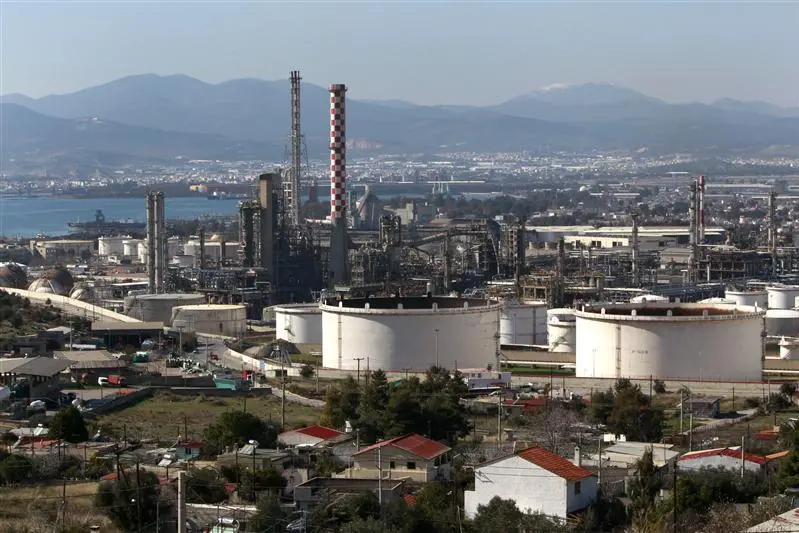PHOTO
SINGAPORE - Oil prices dropped for a second session on Monday as weak China economic data triggered concerns about demand at the world's largest crude importer while the head of the world's top exporter, Saudi Aramco, said it was ready to ramp up output.
Brent crude futures fell $1.14, or 1.2%, to $97.01 a barrel by 0631 GMT after settling 1.5% lower on Friday. U.S. West Texas Intermediate crude was at $91.03 a barrel, down $1.06, or 1.2%, after a 2.4% drop in the previous session.
China's economy unexpectedly slowed in July, while refinery output slipped to 12.53 million barrels per day, its lowest since March 2020, government data showed.
"The official data suggests that oil demand is weakening as domestic logistics and consumer demand are deterred by the record high oil pump prices," said Heron Lin, an economist at Moody's Analytics.
Oil demand could stay on the downtrend for the rest of the year as the threat of COVID-19 restrictions encourages precautionary savings and reduces oil consumption, he added.
Saudi Aramco stands ready to raise crude oil output to its maximum capacity of 12 million bpd if requested to do so by the Saudi Arabian government, Chief Executive Amin Nasser told reporters on Sunday.
"We are confident of our ability to ramp up to 12 million bpd any time there is a need or a call from the government or from the ministry of energy to increase our production," Nasser said. He added that China's easing of COVID-19 restrictions and a pickup in the aviation industry could add to demand.
Oil prices rebounded more than 3% last week after a damaged oil pipeline component disrupted output at several offshore Gulf of Mexico platforms and as investors pared back expectations for interest rate increases in the United States.
Producers had moved to reactivate some of the halted production after repairs were completed late Friday, a Louisiana official said.
Energy services firm Baker Hughes Co reported on Friday that U.S. oil rig count rose by 3 to 601 last week. The rig count, an early indicator of future output, has been slow to grow with oil production only seen recovering from pandemic-related cuts next year.
Global oil markets remained supported by tight supplies in the run-up to EU sanctions on Russian crude oil and refined product supplies this winter.
More supplies could come if Iran and the United States accept an offer from the European Union to revive the 2015 nuclear deal, which would will lift sanctions on Iranian oil exports, analysts said.
(Reporting by Florence Tan; Editing by Kenneth Maxwell and Muralikumar Anantharaman)





















